






Social Sciences subjects include Sociology and Criminology. These subjects provide students with an academic understanding of society, the social world, crime and criminal justice. If you are naturally inquisitive, fascinated by society and have a strong desire to help people, either on a personal or a wider scale, a degree in a social sciences subject could be the perfect choice for you.
These degrees are taught via lectures, tutorials and seminars and are assessed largely by essays, exams, presentations and reports. Social sciences courses tend to be more academic and research-focused rather than practical, however, all our courses do offer the opportunity to undertake a placement. You will also benefit from opportunities to engage with professionals working in the field of your choice, whether that’s through your placement or site visits, field trips, guest speaker slots and workshops.
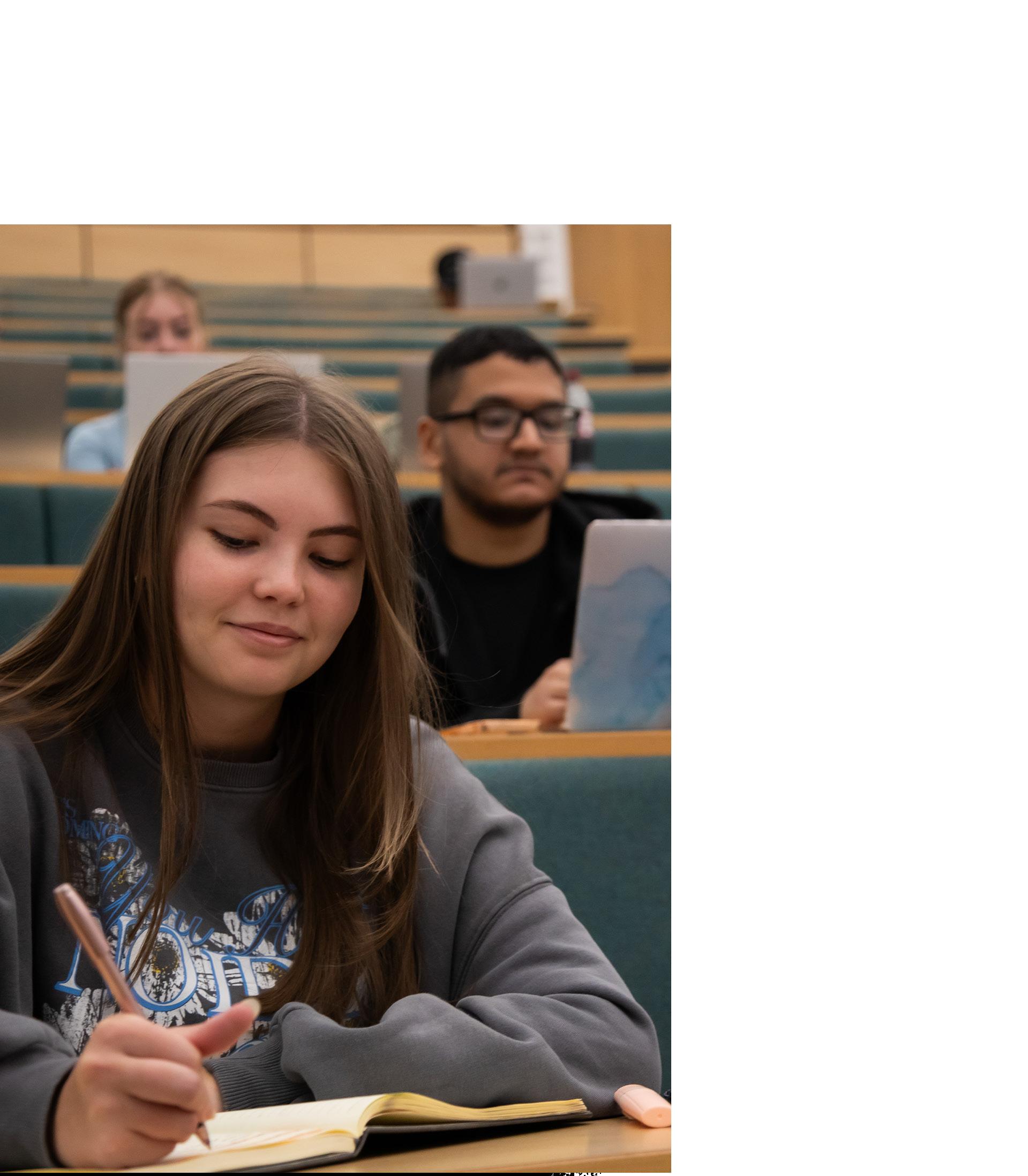
A degree in a social sciences subject can broaden your career opportunities. The beauty of a social sciences degree is it can take you in so many directions and you can use your time on the course to decide which aspect of it you are most passionate about.
Example career pathways of Social Sciences graduates include: Youth Worker, Charity Officer, Human Resources Professional, Housing Manager, Government Advisor Worker, Social Researcher, Probation Officer, Community Development Worker, Teacher, Pastoral Care Worker, Policy Officer. Many people also use a degree in a Social Sciences subject to start their journey into professions such as Social Work, Teaching, Policing and Counselling.
Explore our courses and facilities at: salford.ac.uk/study-social-sciences
Find out about some of the career pathways our recent graduates have taken.

BSc (Hons) Criminology with Counselling graduate
Current Role: Independent Victim Advocate for Victim Support
“After I finished university, I went on to work for Victim Support. I am now an IVA - this is an Independent Victim Advocate. I offer initial support and advice services to those who report incidents to the police, on all ranges and aspects of crimes. I am starting on an all-rounded basis of crime type role but the job does give the opportunity to develop or transfer into particular areas if wanted, such as sexual assault, domestic abuse, etc.”

BSc (Hons) Criminology alumna and MA Terrorism and Security graduate
Current Role: MAPPA Administrative Officer, Prison and Probation Service
“I have worked at His Majesty’s Prison and Probation Service for 2 years now, my current role is as a MAPPA Administrative Officer within the Public Protection Team. I am responsible for administrative support within Greater Manchester’s multi-agency setting. This includes management of highly sensitive and confidential documentation, coordination of multi-agency public protection arrangements (MAPPA) meetings and acting as a point of contact for external agencies such as Greater Manchester Police, the Home Office, and Social Services.”
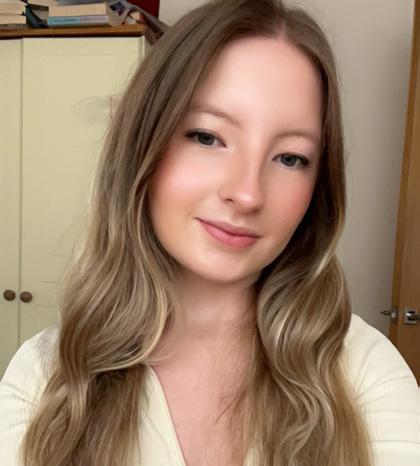
“I have decided to write this on a typical Wednesday for me.”
“I don’t live around the University campus so I tend to leave about an hour before my lecture starts so that I have plenty of time to get the bus. On Wednesdays I usually have to leave at about 9am for my 10am lecture. My buses come fairly quickly and aren’t extremely limited, which is good for me considering I don’t have a good track record for catching buses.”
1:30pm
“Going home is a lot quicker so I will usually get home at about 1:30pm and have some lunch. What I have for lunch sometimes depends, however more often than not it will be a bowl of soup and some bread, or the McDonalds across from the University if I am hungry before I get home.
After returning home and having lunch I will log onto Blackboard and have a re-read over what I didn’t understand in my lecture as sometimes reading things again in a different environment can help me understand it more. I will also look over what I need for my Thursday seminar and ensure that everything goes back into my bag.”
“Usually, I will wake up at around 8am so that I have a full hour to get ready for the day before having to leave for University. Upon waking up I will have around 10-15 minutes to check my phone – social media apps, messages and emails. After that time period I will begin to get ready for University. This means doing my hair and a small amount of makeup as my bag and shower wasere already done the night before. Lastly, before I leave, I will grab myself a pot of fruit from the fridge to eat right before I leave.”
“At University my Wednesdays typically consist of a 3 hour lecture and seminar together. This means that we will get around 2 hours of a lecture and an hour discussion or the lecture will be 3 hours long with periods of discussion in between. My Wednesday module is called Bodies: Biology to Blushing and it is where we are learning about a sociologists view on the body (e.g., sociological explanations for certain aspects such as walking, do we all walk the same?) With it starting at 10, it ends at about 1pm which is where I will then get the bus home.”
“From around 3pm I tend to relax and not do anything University related. This will include seeing my boyfriend, shopping, showering, listening to music, having dinner and just anything that will help me relax for the evening until I get ready for bed at about 11pm to fall asleep for 12am.”
Sociology is concerned with understanding society and our place within it. On this course, you will study human connections and relationships, and how these connections, as well as social structures, such as social class, race and gender, are linked to the way we behave. You will tackle difficult questions around issues such as poverty, sexism, austerity, immigration, privacy and social unrest, and gain insights into individuals’ culture and everyday lives.
Today, our world faces ongoing and evolving changes and crises, each of which impact society in ways that require astute analysis. From the costof-living crisis in the UK to the global environmental crisis and international conflict, people around the world are dealing with rapid changes to the communities they live in, with many becoming unaffordable or even uninhabitable. At the same time, new digital technologies mean people around the world are more informed and connected than ever before and cultural changes mean many more people are expressing identities that were at one time suppressed or even criminalised. As a Sociology student, you will explore these historical changes and contemporary events to understand what kind of impact they can have on society, how societies deal with them and how they can be the catalysts for major societal change.
A degree in Sociology provides a strong foundation for a range of occupations from policing to prison and probation work to journalism and social administration. Our graduates enter a wide range of careers including commerce, management and administration. Others undertake postgraduate vocational training in teaching, law or social work or go on to further academic study.
To hear more from our sociology students, please visit: salford.ac.uk/explore-our-sociology-degree
COURSE INFORMATION AND REQUIREMENTS
LOCATION
DURATION
START DATE
TYPICAL ENTRY
UCAS Tariff
BTEC National Diploma
A-Levels
GCSE
Frederick Road Campus
Three years full-time, six years part-time
September
112 points
DMM
BBC
English and mathematics at grade C/grade 4 or above. Level 2 equivalencies accepted.
UCAS CODE
ASSESSMENT
DELIVERY
L300
Essays, exams, presentations, reports and (optional) dissertation.
Lectures, tutorials, seminars, presentations and site visits.
“In the final year of my Sociology degree, I undertook a placement at Manchester Youth Zone, based in Rochdale. I wanted to explore the nature of youths today, regarding education and circumstance.
I loved the placement as it allowed me to be involved with ages 7-11, 11-14’s and be involved in the inclusion session which is for people with additional needs. I found that this allowed me to experience how the different ages interact, their social connections, and the issues that different age ranges face.
I was able to be involved in a huge variety of activities at Youth Zone. For example, every session alone was filled with cooking, sports, games, arts, music, dance, gym, and boxing, and that’s not even mentioning half of the activities on offer.
I was also able to be involved with groups, such as the allgirls group. The purpose of the all-girls group was to do fun activities, whilst opening up conversations about anything ranging from bullying to social media, to menstruation.
The placement was an amazing experience and influenced me so much that I have just started a job at a school with children with additional needs as a Pupil and Family Support Service Lead, as I found working with youths so fulfilling and enjoyable.”

Criminology is concerned with what behaviour is defined as criminal and who has the power to define what constitutes crime. Criminology is commonly misconceived and confused with other subject areas - for example, forensic science. Although criminology does, of course, explore crime, the focus is on the causes of crime and deviant behaviour, how this affects society and how the criminal justice system responds to this, rather than on crime scene analysis, forensics and criminal investigation.
Criminology is a research-led degree and develops students into analytical and critical thinkers. It explores crime as a social construct, asking important questions such as: What are the individual and societal causes of crime and deviant behaviour? Who in society is more likely to commit a crime? Does offender rehabilitation work? Who is likely to become a victim of crime? Why are some dangerous behaviours criminal and others aren’t? And how does media attention and reporting impact crime and deviance?
Criminologists are also interested in how to prevent crime, the purpose and effectiveness of punishment and how the criminal justice system can better respond to crime when it does take place.
Graduates from our Criminology programmes have gone on to become victim support workers, prison officers, police officers, crime analysts, private security managers, compliance officers, youth offending workers, and to occupy a variety of roles in programmes focusing on drug use, domestic violence or other social problems.
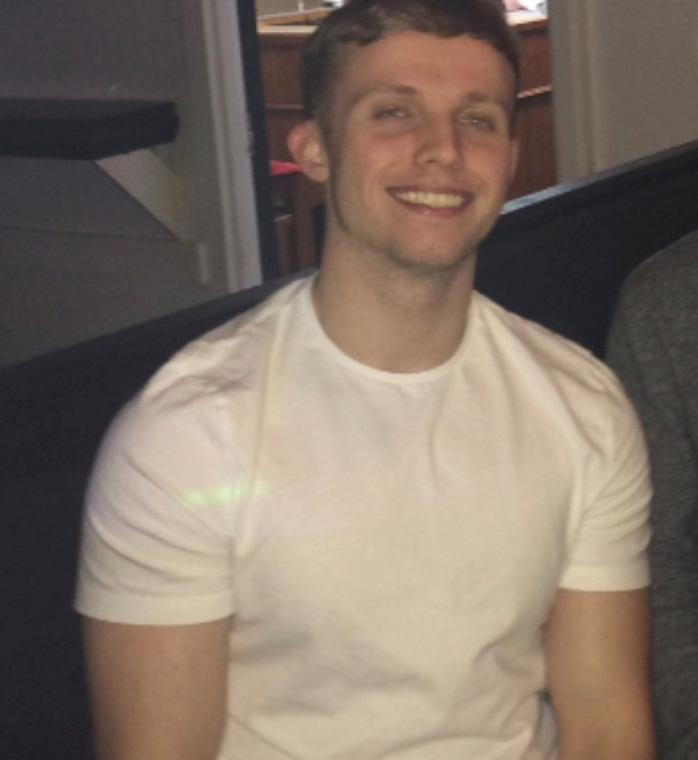
COURSE INFORMATION AND REQUIREMENTS
LOCATION
DURATION
START DATE
TYPICAL ENTRY
UCAS Tariff
BTEC National Diploma A-Levels
GCSE
Frederick Road Campus
Three years full-time, six years part-time
September
112 points
DMM
BBC
English and Mathematics at grade C/grade 4 or above. Level 2 equivalencies accepted.
UCAS CODE ASSESSMENT DELIVERY
M900
Essays, exams, presentations, reports and (optional) dissertation.
Lectures, tutorials, seminars, presentations and site visits.
JOE
JOE
BSc (Hons) Criminology - Top Tip
“The Open Day I attended was very engaging which helped to give you an understanding of what the course was going to be like. Students who were already studying were available so we could ask them any questions we had.”
BSc Criminology and Sociology, BSc Criminology, BSc Criminology and Counselling and BSc Sociology students have the amazing opportunity of choosing a module called ‘Inside-Out’. This module involves contact hours that are delivered inside HMP Forest Bank prison with ‘inside’ students, who are serving prisoners enrolled as University of Salford students for the duration of the module. Jessica completed the module and told us her thoughts:
“I thought it would be interesting to go inside a prison and speak to people who are serving sentences. I wanted to form my own opinions about prisons from experiencing it myself and hearing the experiences of others.”
“We would head to Forest Bank Prison early so we had time to go through all the security, we made our way through the gates, across the yard and into the main corridor of the prison, and through to the education wing. In a classroom we sorted the chairs into a circle and waited for the ‘inside students’ to come in. Once everyone was there, we began tasks and discussions.”
“I didn’t know what to expect, there’s not much you can compare it to, so I tried to not expect anything. I was very nervous at first, but many ‘inside students’ made effort to make me and others comfortable. They were a nice, normal bunch of guys.”
“We had different discussions and tasks each week, people had such a variety of opinions, but no one ever got heated over disagreements and everybody would always let people speak up, but they also weren’t afraid to disagree. Something interesting was always being discussed. The best moments were getting to know the inside guys: a really friendly group, with so many experiences and funny stories.”
“The assessments were challenging as I have not had to write reflectively before, but they were not completely overwhelming, and we all received plenty of support. The presentation that was done
“Inside-out is delivered in a local prison to both students from within the prison and students studying on our undergraduate programmes in criminology and sociology. Everyone is equal, with an equal voice and an equal stake in the learning process. Everyone does the same reading, writing and grappling with complex issues together”
in groups was especially enjoyable and done in a more fun way to present; like a gameshow. Everyone had their own unique strengths so some students would be more comfortable with presenting. At the end of our tasks, we were all proud of what we had managed to do individually. The best was when people got their results back, many inside students were so proud of their results, one said he couldn’t wait to ring his mum and tell her which made my day.”
“The lecturers were fantastic. Antony and Kelly are very approachable, down to earth people who connected really well to both sets of students inside and outside, and they were patient, supportive and explained everything well. They kept everyone on track well without it feeling rushed, even though everyone agreed we all wished we could have had more time together.”
“Yes, highly, it is an amazing experience.”
To hear more from our Criminology students, please visit: salford.ac.uk/explore-criminology-degrees-salford
Criminology is concerned with what behaviour is defined as criminal and who has the power to define what constitutes crime. Criminology is commonly misconceived and confused with other subject areas like forensic science. Although criminology does, of course, explore crime, the focus is on the causes of crime and deviant behaviour, how this affects society and how the criminal justice system responds to this, rather than on crime scene analysis, forensics and criminal investigation.
This course uniquely combines criminology with counselling studies – two disciplines which are vital to the criminal justice system. Criminology is a research-led degree and develops students into analytical and critical thinkers. It explores crime prevention, the purpose and effectiveness of punishment and the role of the criminal justice system. Counselling brings a more practical element to this course – it has an important and expanding role in attending to the victims of crime, addressing some of the causes of offending, reducing re-offending, seeking restorative justice, and alleviating stress among criminal justice practitioners. The counselling element of the programme will broaden and deepen your understanding of counselling-related issues.
You will develop your competence in working with the person-centred counselling approach, and you will develop a wide range of professional skills, including communication, reflective practice and self-awareness, research
LOCATION
DURATION
START DATE
TYPICAL ENTRY
UCAS Tariff
BTEC National Diploma A-Levels
GCSE
Frederick Road Campus
Three years full-time, six years part-time
September
112 points
DMM
BBC
English and Mathematics at grade C/grade 4 or above. Level 2 equivalencies accepted.
UCAS CODE
ASSESSMENT DELIVERY
M905
Essays, exams, presentations, reports and (optional) dissertation.
Lectures, tutorials, seminars, presentations and site visits.

A degree in Criminology and Counselling provides a strong foundation for a wide range of occupations from victim and witness support, prison, probation work, and community rehabilitation companies.
Our graduates have gone on to become victim support workers, prison officers, police officers, crime analysts, private security managers, youth offending workers, and to occupy a variety of roles in programmes focusing on drug use, domestic violence or other problems.
Some of our graduates also go on to complete a conversion qualification for a career in law while others do a postgraduate certificate in education and go into teaching.

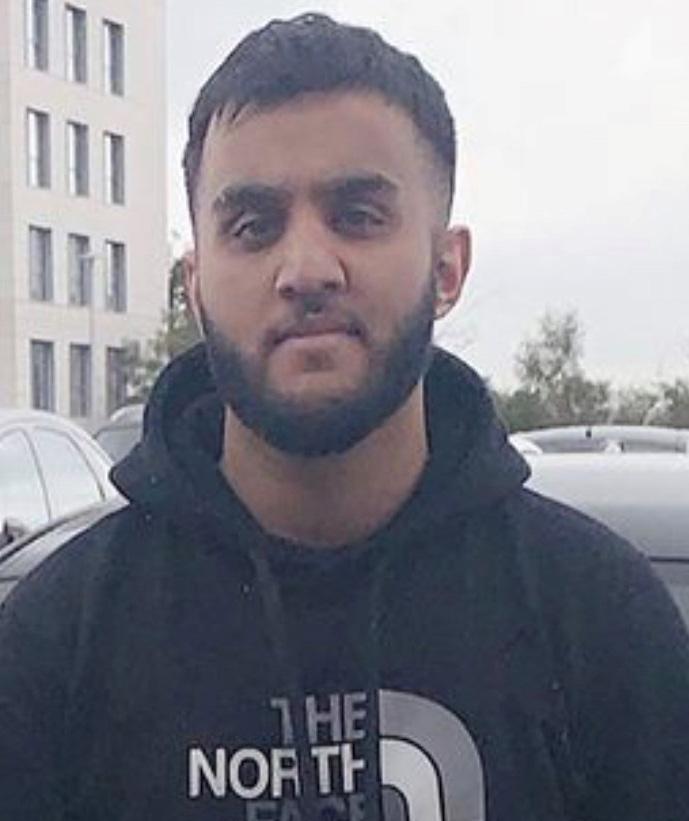
BSc (Hons) Criminology with Counselling Student – Top Tip
“Your personal tutor is always there to help regardless of the issue, which is something I have been very appreciative of”
What is defined as crime? Who in society has the power to define this?
What are the individual and societal causes of crime and deviant behaviour? Who in society is more likely to commit a crime? Can mass societal change influence criminal behaviour? How does media attention and reporting impact crime and deviance? How are social structures, such as social class, race and gender, related to the way we behave? And do they impact on the way we are treated by the criminal justice system? These are just some of the questions asked by Sociologists and Criminologists, and this joint degree is perfectly positioned to answer them.
This interesting and stimulating Criminology and Sociology degree will provide you with a sound understanding of the key conceptual and substantive issues involved in the study of society, crime and criminal justice. The degree will highlight the connections between personal troubles and public issues. You will learn how to apply critical thinking toward a range of global and local issues such as climate change, technological developments, poverty, unemployment, homelessness, racism, gender inequality, and power in society, and how these topics also relate to crime, criminalisation, and crime control.
Criminology and Sociology is a flexible degree, for the first year, everyone studies the same curriculum. In years two and three you will be able to select specific modules and curate your own pathway on a range of different Criminological and Sociological topics. The degree will ground you in sociological and criminological theories, as well as provide you with key social research skills, both of which provide key knowledge and skills that open opportunities for a range of employment opportunities and career options.
Graduates from our Criminology programmes have gone on to become victim support workers, prison officers, police officers, crime analysts, private security managers, compliance officers, youth offending workers, and to occupy a variety of roles in programmes focusing on drug use, domestic violence or other social problems.
LOCATION
DURATION
START DATE
TYPICAL ENTRY
UCAS Tariff
BTEC National Diploma A-Levels
GCSE
Frederick Road Campus
Three years full-time, six years part-time
September
112 points
DMM
BBC
English and Mathematics at grade C/grade 4 or above.
Level 2 equivalencies accepted.
LM39
UCAS CODE ASSESSMENT DELIVERY
Essays, exams, presentations, reports and (optional) dissertation.
Lectures, tutorials, seminars, presentations and site visits.

Well, I researched a lot of different universities and Criminology/ Sociology courses! Once I’d developed a short list of institutions that offered degrees which aligned to my own interests, I found that it was quite difficult to figure out which one was the right ‘fit’. I decided then to attend a lot of open days to be able to get a better feel for the different places and people. Coming to Salford, spending some time here, going to the taster sessions and talking to the staff was extremely helpful in terms of understanding not only what the course entails, but what kind of atmosphere they foster and value here. It was always important to me that the department felt quite close-knit and welcoming, I wanted to be part of a community and that was something I felt straight away when I came to the open day. I knew then that this was the place for me. It just felt right!
I can’t recommend Salford enough if you’re interested in studying Criminology. The department is very research active so you’re constantly learning new and exciting things, the modules are diverse and its home to such a supportive and engaging atmosphere. If you’re considering studying here, I’d really advise coming to an open day - have a chat about the course and the modules, get a feel for the place and bring as many questions as you have.
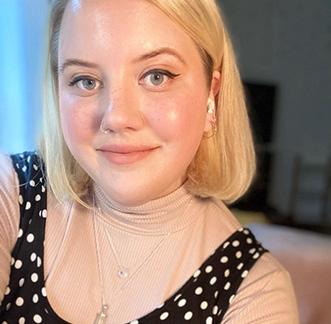
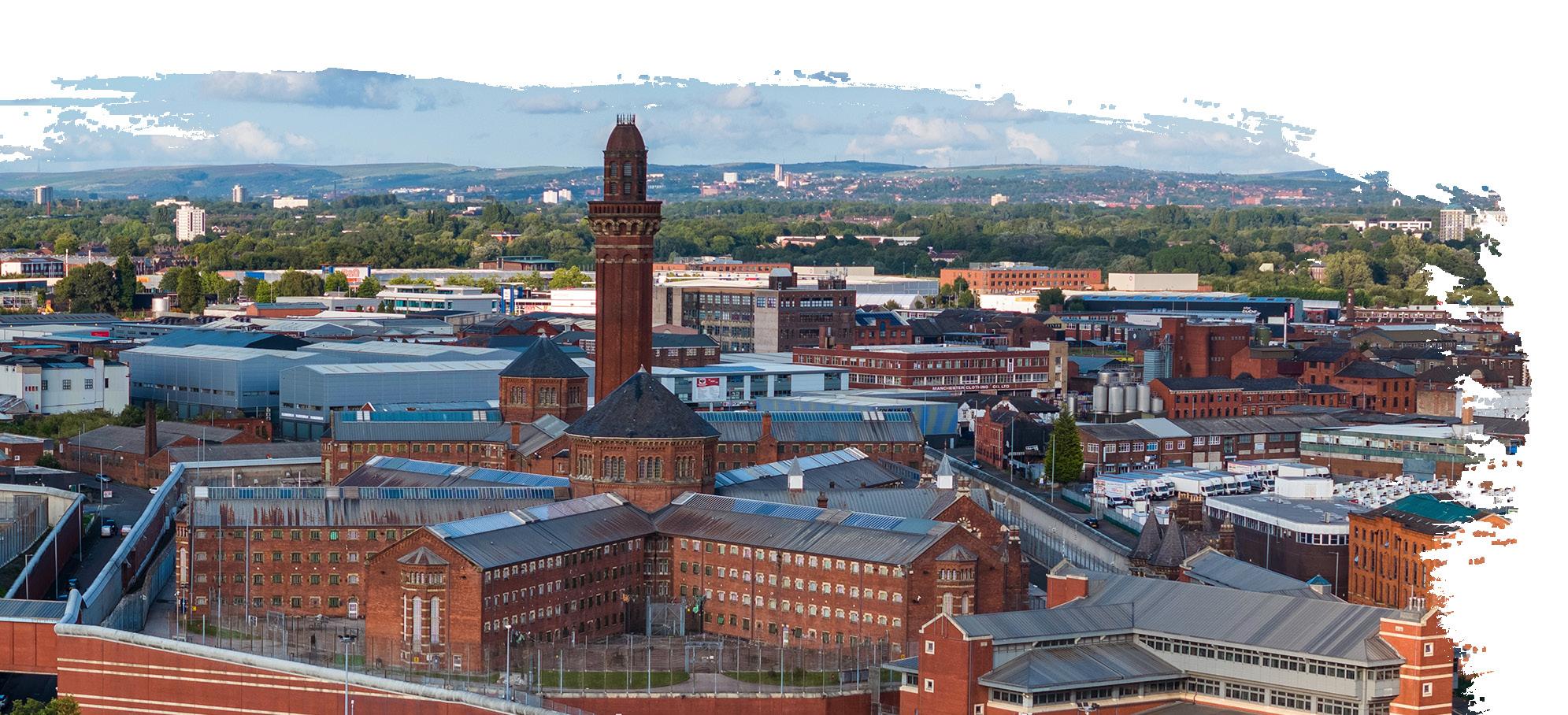
If you don’t meet our entry requirements for your preferred course or would benefit from a smoother transition into University study, don’t worry – we have a foundation year that could be the perfect option for you.
The Foundation Year programme will help you develop an understanding of the key subjects in the social sciences so that you can continue to successfully study your degree.
This foundation year is part of a four-year pathway (five-years with a placement year) which will prepare you to study your chosen social sciences course. The key areas of study are effective communication and study skills, combined with fundamental subjects in the social sciences.
DURATION
START DATE
TYPICAL ENTRY
UCAS Tariff
A-Level
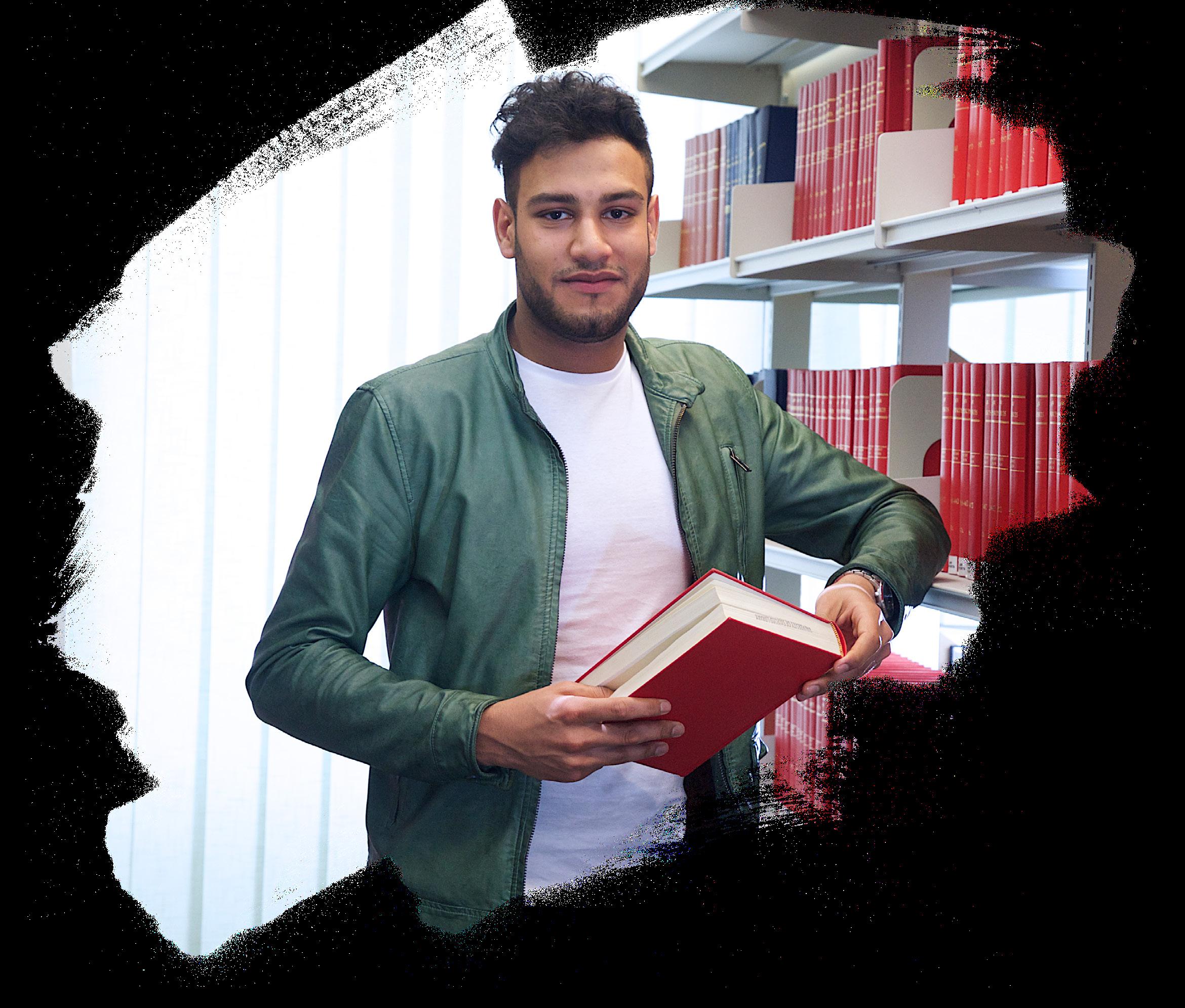
Four years full-time September 80 points 80 UCAS Tariff points from a minimum of two A2 subjects (BB/CDD).
BTEC National Diploma
ASSESSMENT DELIVERY
MMP (BTEC Extended Diploma), MM (BTEC Diploma).
Presentations, essays, written and practical exams.
Lectures, seminars, reflective practice, guided study, teamwork and oral presentations.
Our students and graduates often say that one of their favourite things about Salford is the “community feel” and we are proud of our diverse and interconnected social sciences community. Our team is made up of professionals who have a broad range of specialisms and who are very active in their respective fields, from moral panics, ‘true crime’, prisons and youth crime, through to the social impact of technologies, policing, gender and social class — whatever you’re interested in, it’s likely there’s an expert for you to talk to!
We stay in touch with our graduates, who are advocates for our courses, and our teams have excellent connections with industry, ensuring that you have access to experts across all fields, whether that’s through placements, field trips or guest lectures.
In the latest Research Excellence Framework, which evaluates the university’s research output, our highest performing submission for ‘impact’ was Social Work and Social Policy with 75% of impact rated as outstanding and 100% rated as outstanding or very considerable.
(Research Excellence Framework (REF), 2021)
Dr Adam Aitken is a lecturer in Criminology at the University of Salford. His areas of interest are security/ securitisation of large events, private security and security governance, placemaking and rural resilience, environmental risks and harms, police use of technology, crime, space and place (including digital).
Dr Kelly Lockwood came to the University of Salford in 2015 as a Research Assistant before becoming a Criminology Lecturer in 2016. Kelly has research interests in women and the criminal justice system, with a focus on mothering and imprisonment. Since arriving at Salford, Kelly has worked on a number of externally funded research projects in this area.
She has previously worked as a manager for a women’s centre working in partnership with criminal justice agencies to support women who had offended or were at risk of offending. Kelly is also the programme lead for the BSc Criminology with Counselling and BSc Criminology with Security programmes.
Dr Toni Wood is a lecturer in Criminology, Academic Researcher and Programme Lead for BSc Sociology, BSc Criminology and the Criminology and Sociology programmes at the University of Salford.
Her current research programmes include Menopause and the Prison, an exploration of the experiences of older women in the prison (staff and prisoners), with wider research in autism, attention deficit hyperactivity disorder (ADHD) in the criminal justice system (CJS): health and wellbeing of prison staff.
Toni is coordinator of the Criminal Justice Hub at the University of Salford, a collaborative network of Social Sciences. Toni is also one of the co-founders of the Autism and Criminal Justice Research hub at the University.
Dr Thomas Redshaw joined the University of Salford in 2018 as a lecturer in Digital Society and is now the Admissions Tutor for the Criminology and Sociology programmes. His field of interest is the emerging field of digital sociology. Since arriving at Salford, Tom has co-organised two conferences that invited distinguished speakers to present their research on topics relating to the evolving digital landscape: ‘Reclaiming The Social in Digital Society’ (2019); and ‘Deviant Pleasure Markets and Digital Technologies’ (2020).
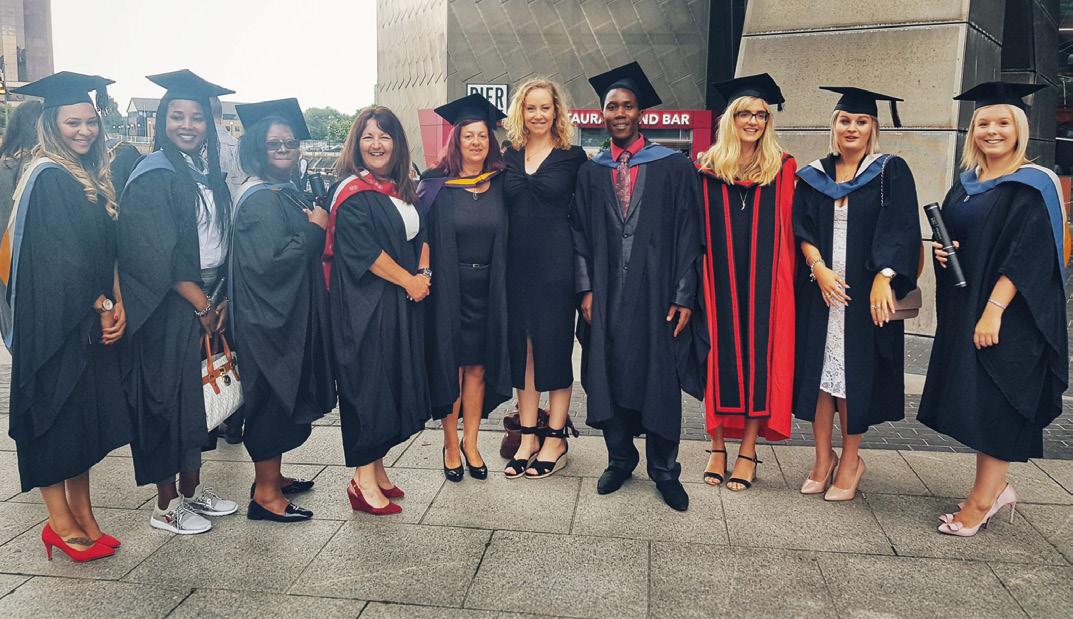
Professor Lisa Scullion is Co-Director of the Sustainable Housing and Urban Studies Unit (SHUSU). Lisa joined the University of Salford in 2006 and since then has delivered over 60 externallyfunded research projects. Her work focuses on experiences of the social security benefits system, and she engages directly with policy makers throughout her work. Lisa led the largest national UK study focusing on social security and employment support during the Covid-19 pandemic. Lisa is currently leading the UK’s first substantive research study focusing on the experiences of military veterans within the benefits system.
These people are all experts in their respective fields and can provide useful insights into different career pathways. Regular guest speakers include:
MATTHEW TORBITT
Senior Parliamentary Researcher and Communication Officer, UK Parliament.
TONY NEWMAN
An Independent Consultant, Project Manager and Trainer in social housing.
Principal Officer, Salford City Council’s Welfare Right’s and Debt Advice Service.
PETE ATHERTON
Chief Executive Officer and Founder of Community Led Initiatives, working with ex-offenders.
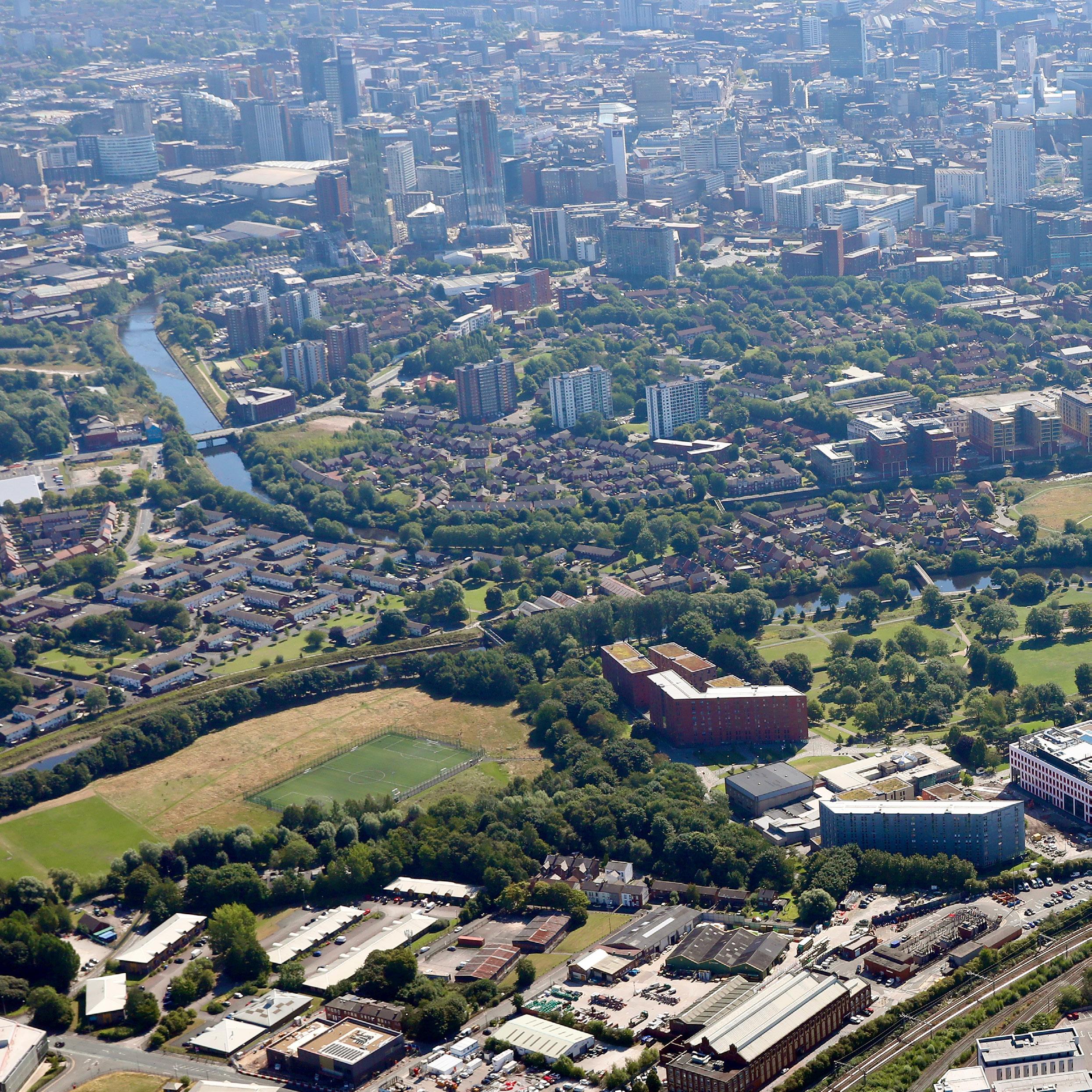
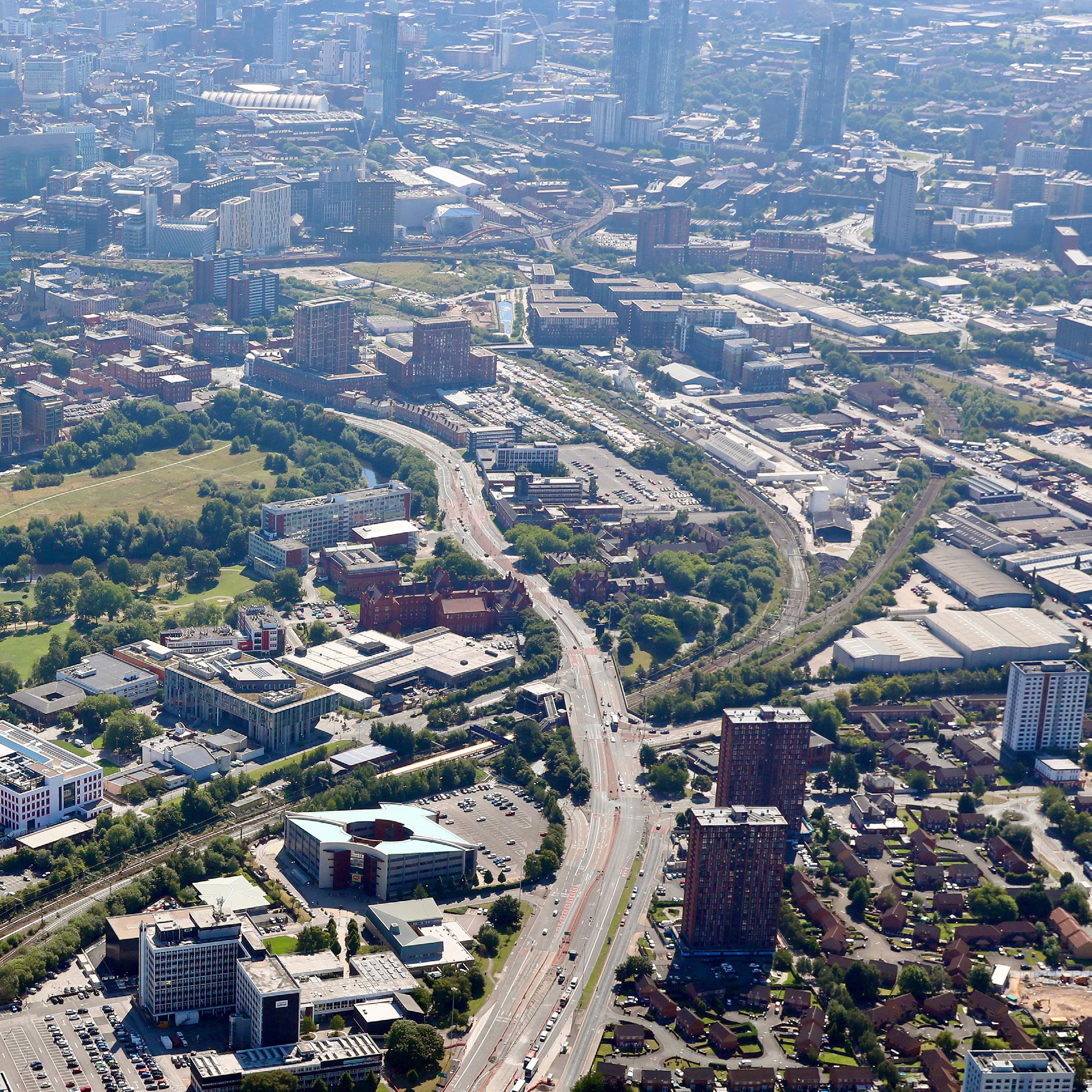
As pioneers of the Industrial Revolution, there’s always been an entrepreneurial spirit here in the North West of England – we’ve got big ideas and we make them happen. Thousands of students from over 100 countries have already found that Salford is the place where they can gain skills and knowledge to unlock their career ambitions.
Salford students are part of a 100,000 collective making up one of Europe’s largest student populations. Famous for music, culture, sport, art and science, the cities of Manchester and Salford offer an unrivalled student experience, where you can balance your academic studies with a wealth of world-class culture, exciting events and legendary nightlife. It’s no surprise that Manchester has been voted the UK’s most liveable city for nine years running (Economist Intelligence Unit, 2014-2023) and recently voted the third-best city in the world (TimeOut, 2021).
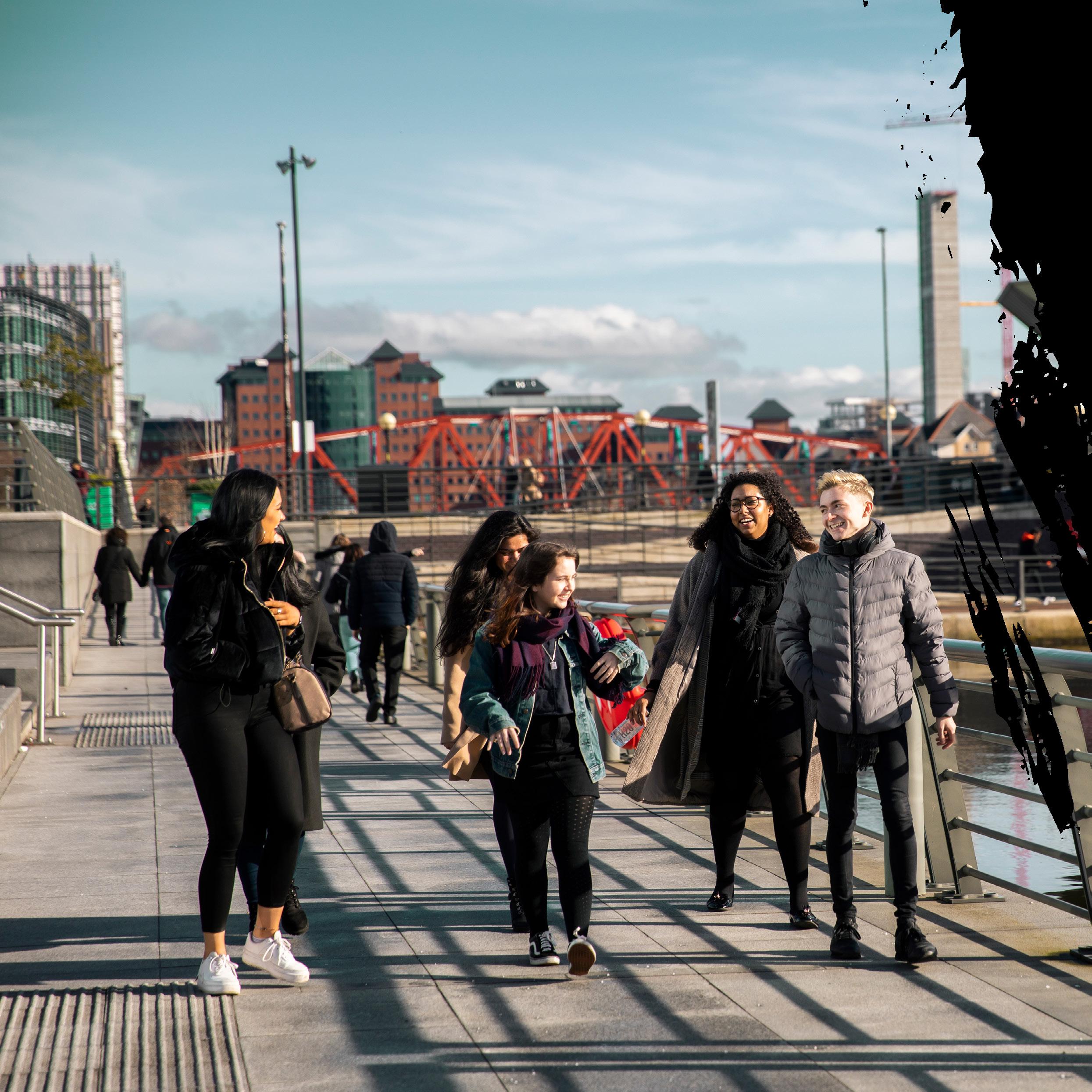

The University of Salford is a unique place to study for many reasons, but especially for our location. Our Peel Park campus and Frederick Road Campus (home to the School of Health and Society) are situated beside Peel Park, which recently underwent a £1.6 million refurbishment and is one of the UK’s first public parks. We also have a state of the art campus in the creative hub at MediaCity, home to the BBC, ITV, and the UK’s largest media facilities outside of London. Whichever campus you’re based on, you’ll benefit from the buzz of two vibrant cities: Salford and Manchester.
University is a time to make new friends, discover new passions and find your voice. Our Students’ Union runs a wide range of student-led societies which cover all aspects of student life – from gaming to sports, politics to the environment, performance to faith. You’ll be sure to find your place and crowd.
There’s more to our campus than places to study. Exercise enthusiasts and social sports lovers can take advantage of our large sports centre, 3G sports pitches and swimming pool, whilst culture vultures can revel in our Atmosphere café and bar, Art Gallery and New Adelphi Theatre. There’s lots of options to keep you busy!
If you’re travelling from further afield, you can make your first year even more memorable by living in our on-site stylish student accommodation right at the heart of campus.
If you’re here for the day, our specialist facilities, on-site parking and handy train and tram station access make commuting a breeze. Our new commuter lounges feature comfy seating, cooking facilities and extra study space –your home from home when you’re on campus. Discover student life for yourself at:
salford.ac.uk/student-life
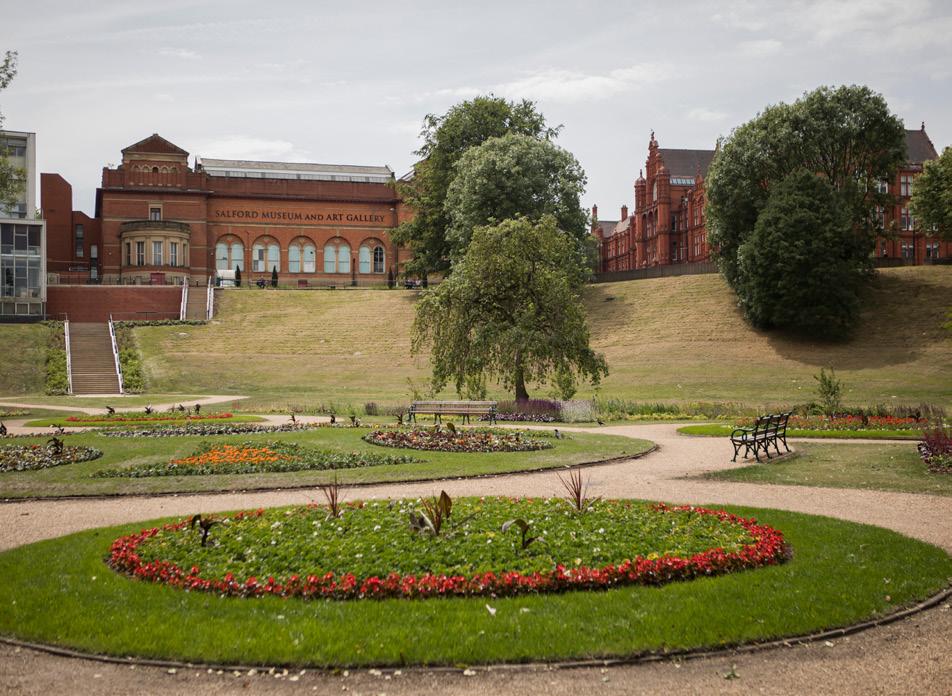
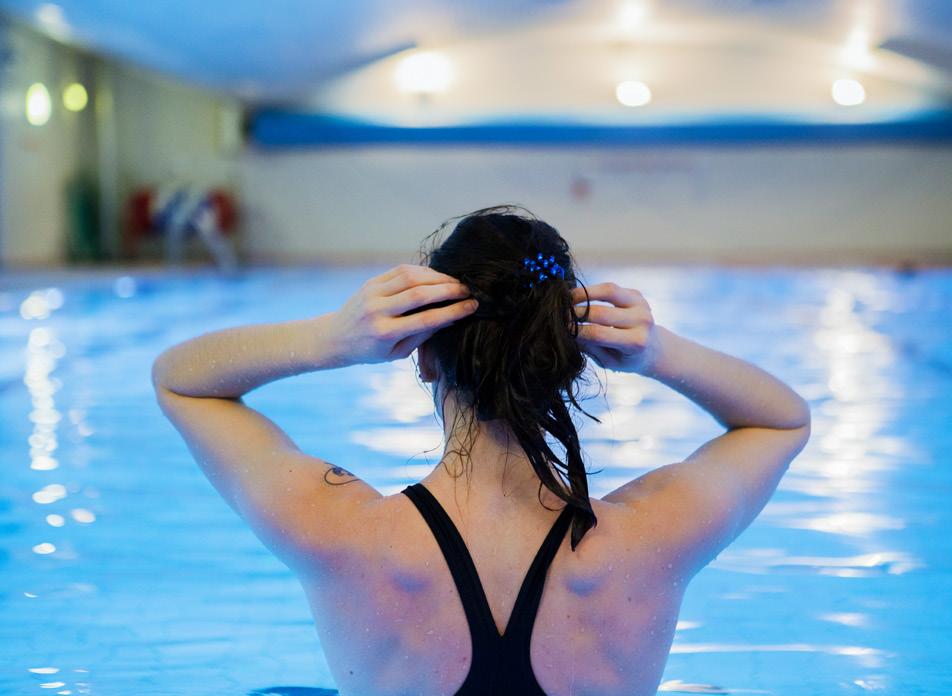
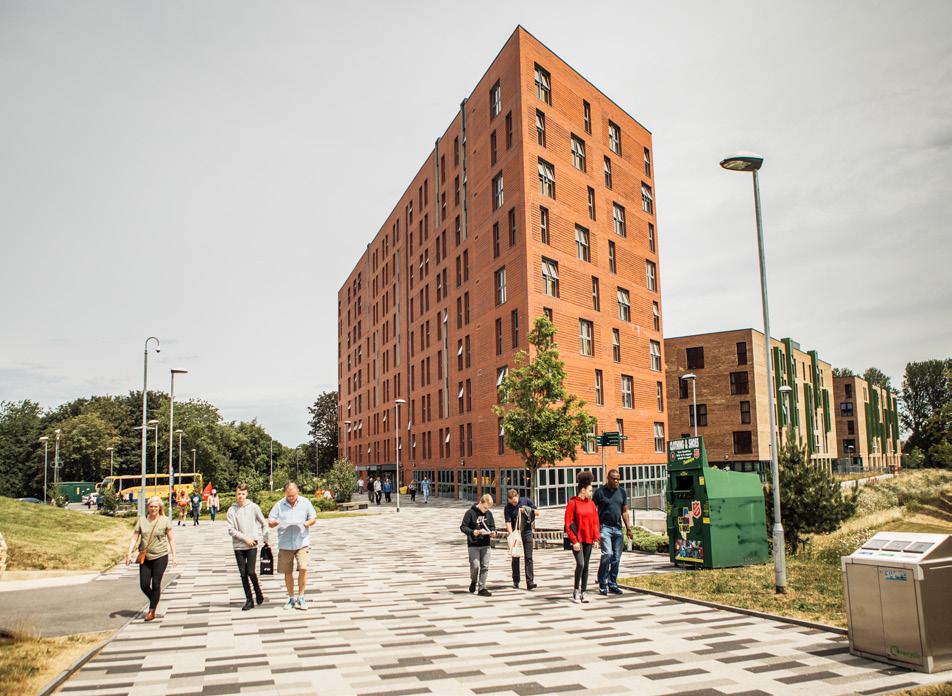
If you are applying directly from school or college, you’ll make your application through the University and Colleges Admissions Service (UCAS) – the organisation which processes applications for UK higher education.
If you’re not applying directly from school or college, you can complete our online application form. Find out more at:
salford.ac.uk/how-to-apply
Places on some of our courses can be highly competitive and may also require you to attend an interview.
Interviews are nothing to be nervous about. They allow us to talk to you about your chosen subject area in more detail and learn more about your ideas, current skills and passion.
For detailed course information and entry requirements, use our handy Course Finder on our website: salford.ac.uk
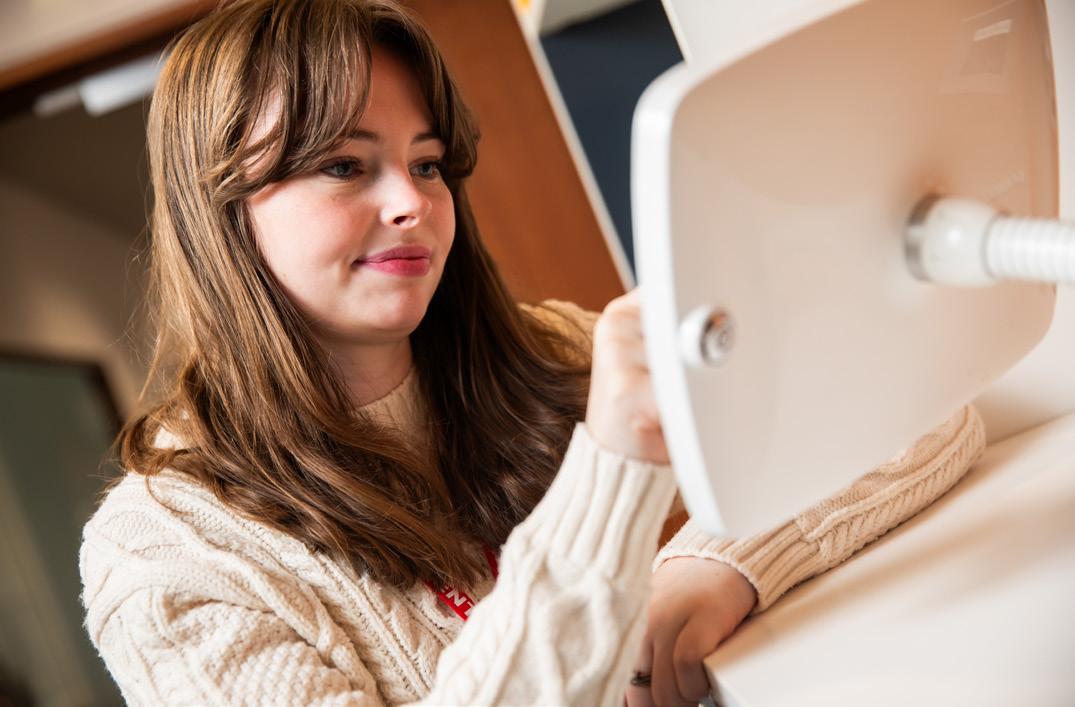
If you want to discuss a course, or the application process, our friendly course enquiries team are on hand to answer your queries:
+44 (0)161 295 4545 enquiries@salford.ac.uk salford.ac.uk/enquiries
We believe in creating opportunities for anyone who has the passion to learn. If you’d like to join us from the world of work, or balance the two, you’re very welcome at the University of Salford.
The Accreditation of Prior Learning (APL) process could help you to make your work and life experience count. The APL process can be used for course entry, or to give you exemptions from some parts of your course. Visit our ‘how to apply’ page to find out more.
salford.ac.uk/how-to-apply
Apply to the University of Salford through UCAS using the code S03.
The equal consideration deadline for most courses is in January, please visit ucas.com for more information.
Receive your offer.
As an international applicant, you are able to apply through UCAS, the organisation which processes applications for UK higher education; alternatively, you can apply directly through our regional offices or one of our approved education consultants in your country.
For help and support, visit our website for further details. Here, you’ll find guidance on application procedures, entry requirements, English language prerequisites, necessary documents, as well as support and advice on visa requirements/applications and more.
salford.ac.uk/international
Book accommodation and arrange student finance.
Accept your offer.
Receive your enrolment pack and start life as a Salford student!
Receive your exam results.
If your results are lower or higher than expected, you can consider an alternative programme through Clearing.
Start your journey with the University of Salford today.
Visit: salford.ac.uk/study-social-sciences for more information.
@SalfordUni /salforduni @salforduni
@SalfordUni
salford.ac.uk
SalfordUni